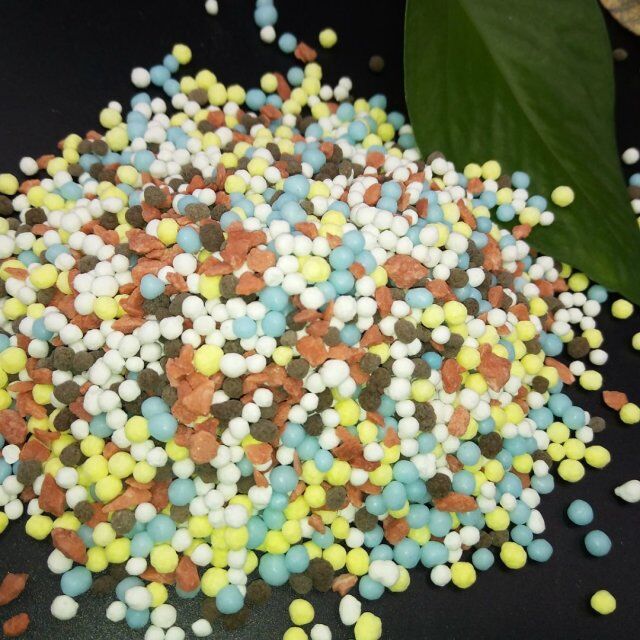
Nov . 16, 2024 06:23 Back to list
16-8-8 fertilizer for yews
Understanding 16-8-8 Fertilizer for Yews
When it comes to maintaining a lush and vibrant garden, understanding the nutritional needs of your plants is crucial. One type of plant that often graces gardens and landscapes is the yew tree (Taxus spp.), a hardy, evergreen shrub or tree that thrives in various soil conditions. To ensure that yews grow vigorously and display their characteristic beauty, it's essential to provide them with the right type of fertilizer. One effective option is the 16-8-8 fertilizer, which contains a balanced ratio of essential nutrients.
What is 16-8-8 Fertilizer?
The numbers in the 16-8-8 designation represent the ratio of nitrogen, phosphorous, and potassium (N-P-K). These three nutrients are fundamental to plant health
- Nitrogen (N) At 16%, nitrogen is the primary nutrient in this fertilizer. It plays a vital role in promoting leafy, green growth. Nitrogen is essential for photosynthesis, which is the process through which plants convert sunlight into energy. Adequate nitrogen levels ensure that yews have lush foliage, making them more attractive and healthy.
- Phosphorous (P) With a concentration of 8%, phosphorous is key in promoting root development and flowering. For yews, which rarely produce flowers but depend on a robust root system for nutrient uptake, phosphorous is crucial. This nutrient particularly helps in establishing new plants and encourages overall plant vigor.
- Potassium (K) The third number, also 8%, signifies potassium. This nutrient is essential for various physiological functions in plants, including water regulation, enzyme activation, and overall metabolic processes. It helps yews resist drought, improve hardiness, and enhances the plant's immune response against pests and diseases.
Benefits of Using 16-8-8 Fertilizer for Yews
When used appropriately, 16-8-8 fertilizer can offer several benefits to yew trees
1. Promotes Healthy Growth The balanced nutrient ratio promotes strong, healthy growth in yews. With proper nitrogen levels, the foliage becomes rich and vibrant, adding aesthetic appeal to the garden.
2. Improves Root Development The presence of phosphorous encourages strong root systems that are vital for water and nutrient absorption, leading to better overall health.
16-8-8 fertilizer for yews

3. Enhances Drought Resistance With the potassium content, yews improve their ability to withstand dry periods, making them more resilient in varying climates.
4. Supports Disease Resistance A well-nourished yew is less susceptible to diseases. By using a balanced fertilizer, you help ensure that your yews maintain a strong immune system.
Application Tips for 16-8-8 Fertilizer
To achieve the best results when fertilizing yews with 16-8-8 fertilizer, consider the following tips
- Timing Apply fertilizer in late winter or early spring when new growth begins. This timing ensures that nutrients are available when plants need them most.
- Method Spread the fertilizer evenly around the drip line of the plant, avoiding direct contact with the trunk. This method enables the roots to absorb nutrients efficiently.
- Watering After applying fertilizer, water the area thoroughly. This helps to dissolve the nutrients and allows them to penetrate the soil, reaching the root system.
- Frequency Typically, yews benefit from fertilization once a year, though heavily used or stressed plants may require an additional application mid-season.
Conclusion
Utilizing 16-8-8 fertilizer can significantly enhance the growth and health of yews in your garden. By providing the correct balance of nitrogen, phosphorous, and potassium, you can promote lush foliage, robust root systems, and overall plant vitality. Whether you are cultivating yew hedges or standalone specimens, understanding and meeting their nutritional needs will ensure these resilient plants thrive, adding timeless beauty to your landscape for years to come. Always remember to follow the recommended application guidelines for the best results and a flourishing garden.
-
Organic 10-10-10 Fertilizer | Balanced Plant Nutrients
NewsJul.31,2025
-
Premium Amino Acid Fertilizer | Rapid Plant Growth Booster
NewsJul.31,2025
-
10 10 10 Fertilizer Organic—Balanced NPK for All Plants
NewsJul.30,2025
-
Premium 10 10 10 Fertilizer Organic for Balanced Plant Growth
NewsJul.29,2025
-
Premium 10 10 10 Fertilizer Organic for Balanced Plant Growth
NewsJul.29,2025
-
Premium 10 10 10 Fertilizer Organic for Balanced Plant Growth
NewsJul.29,2025
